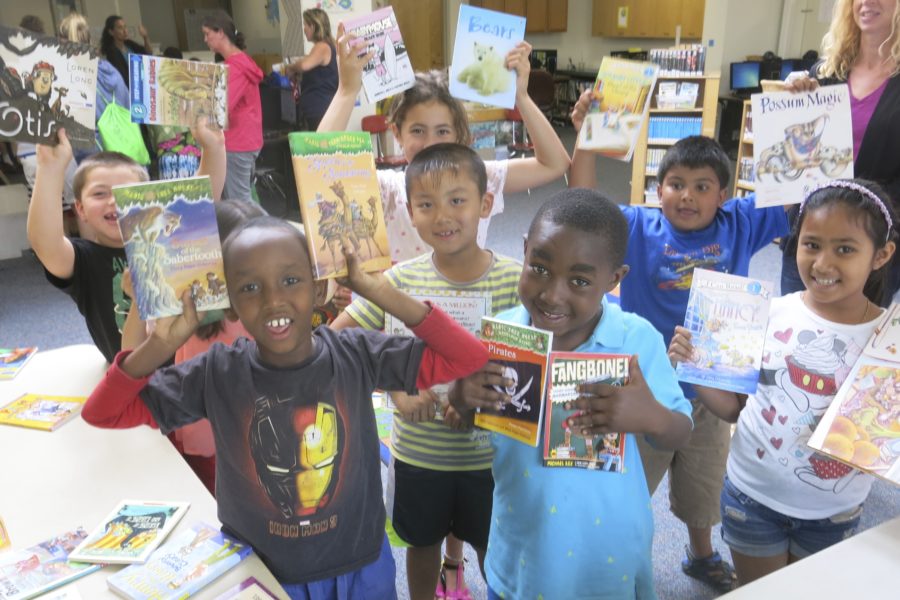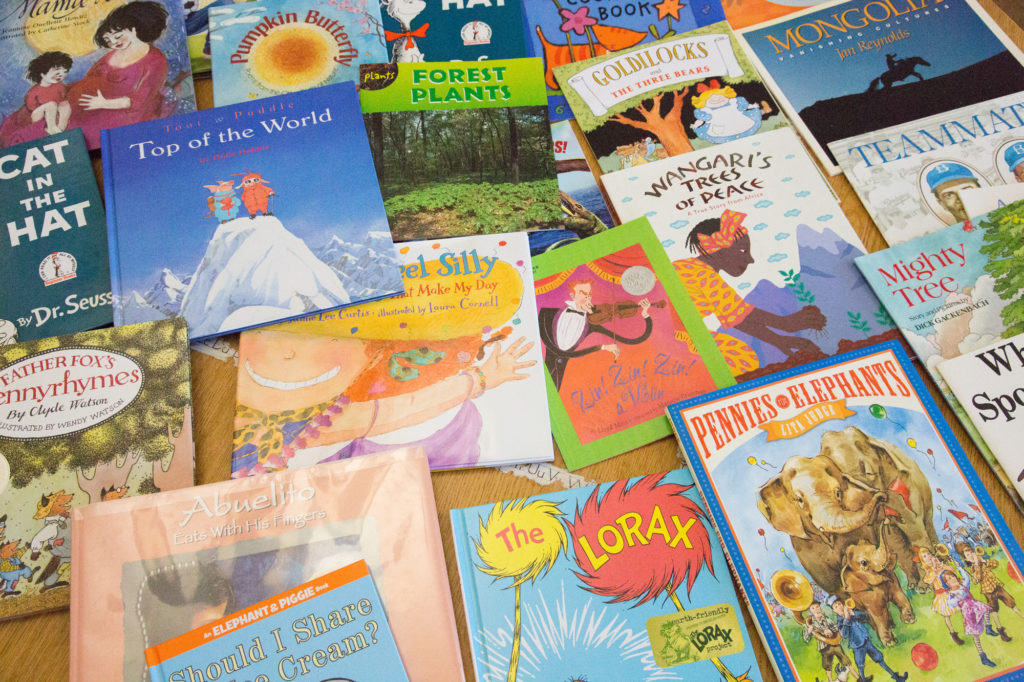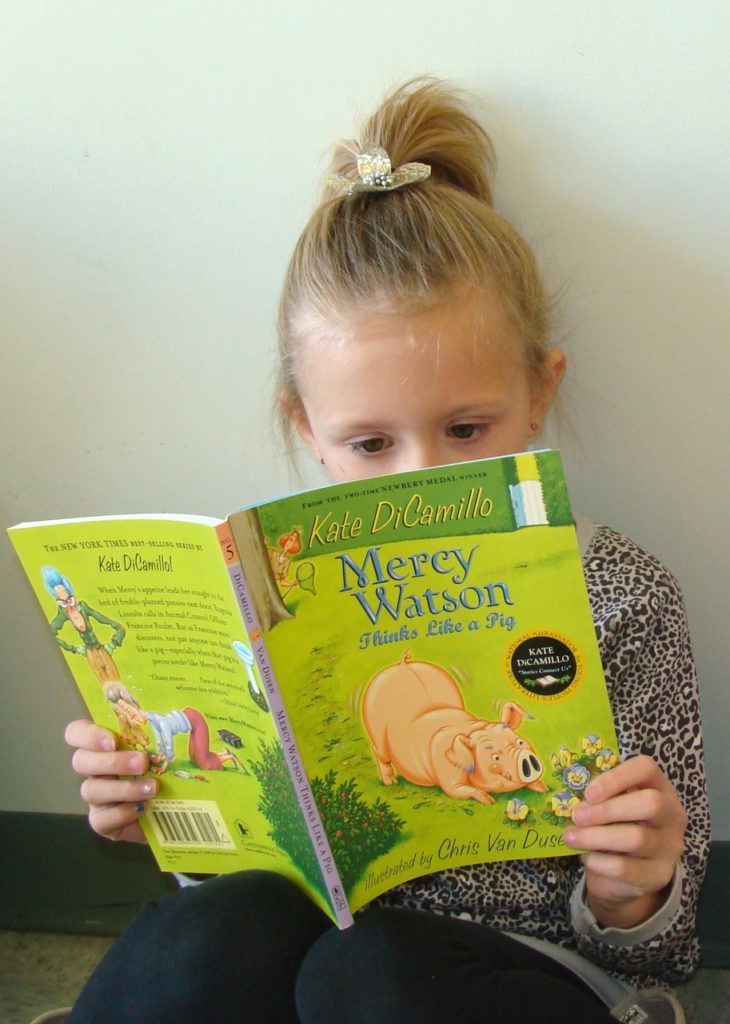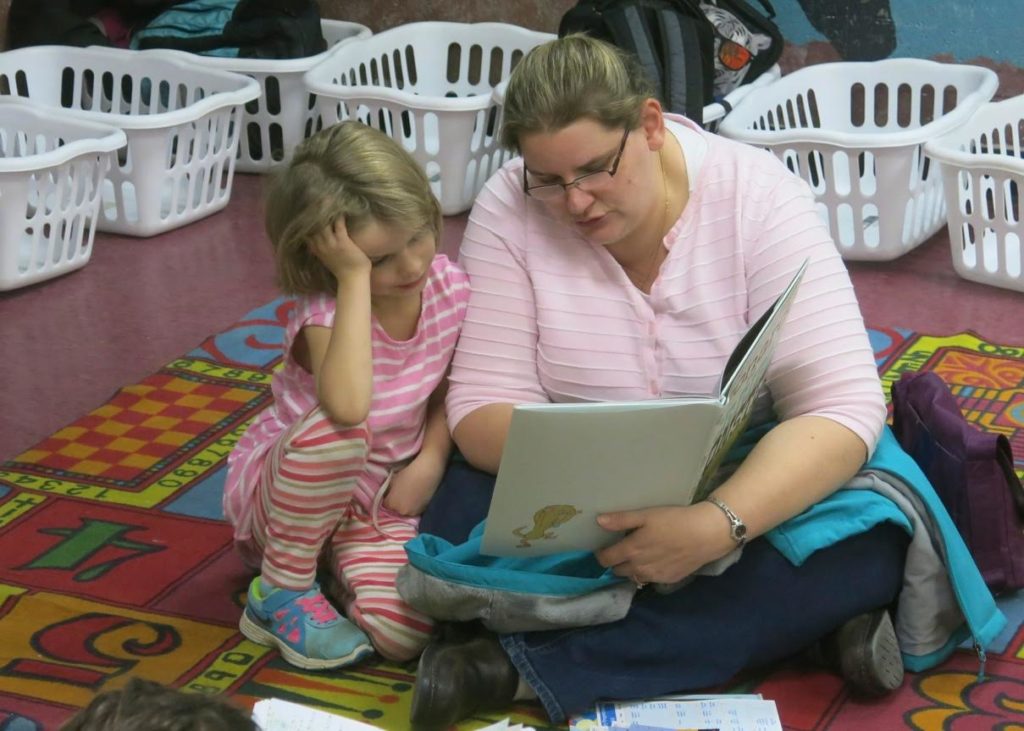
We know literacy is important. But how do we help encourage early literacy skills in the kids most at-risk of falling behind? CLiF’s programs emphasize a love of reading and writing and encourage children and families to do it more often, while providing support and resources.
All of CLiF’s program include a professional storyteller getting kids excited about reading and writing and sharing how they create books and stories. CLiF programs also include book giveaways, where kids choose their very-own brand new books to keep, increasing access to high-quality reading materials at home.
CLiF also provides resources to families to encourage more at-home literacy skills development, such as family seminars on the importance of reading and tips for sharing books and stories with kids, at the end of which children and parents choose new books to read together.
How can access to a wide variety of books and literacy experiences make a difference?
Low-income kids may lack access to books.

61% of low-income families have no children’s books in their homes.
Access Matters.
Frequent readers have an average of 139 books in their homes vs. 74 in infrequent readers’ homes.
Let kids choose their books.

88% say they are more likely to finish a book they have picked out themselves. So by letting kids choose their own books, we encourage them to enjoy reading and do it more often.
89% of children surveyed say that their favorite books are the ones that they have picked out themselves. (Seems obvious, doesn’t it? Who doesn’t prefer something they picked out themselves. vs. something assigned to them?)
Reading Aloud Makes a Difference.

Reading aloud to children has social, emotional, and mental health benefits, in addition to academic benefits.



